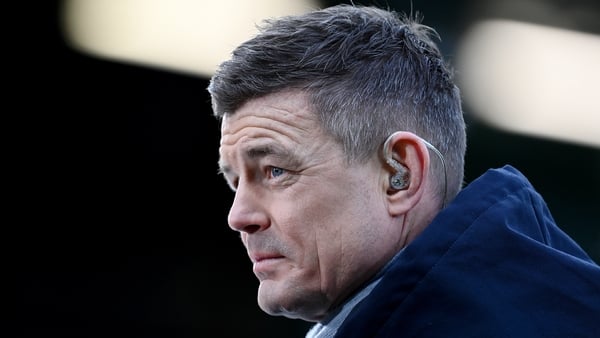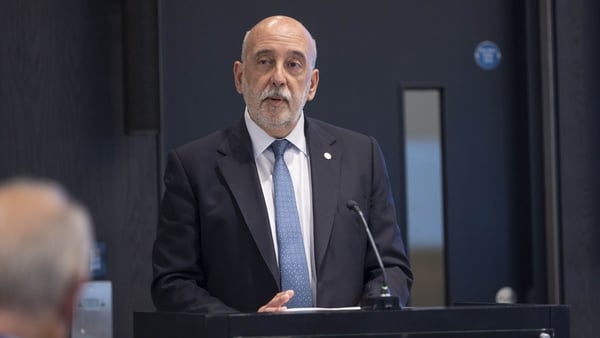Aid agencies say Sudan is suffering the worst humanitarian catastrophe in recent history, yet the crisis in the northeast African country remains unknown to most of the world.
Reporter Aengus Cox and cameraman Enda O'Byrne visited Sudan to witness the desperate conditions that people are living in.
"We don't have enough and are appealing for any sort of help to get more resources."
That's the call from Duke Nyauncho, Trócaire's Finance and Operations Manager in Sudan.
He's speaking with me at the Tobo displacement camp in the Nuba Mountains.
It's one of the biggest camps in the region with more than 60,000 inhabitants - and more new arrivals each day.
Trócaire operates a small health facility a couple of miles from Tobo camp, established years before the massive influx of people.
However they're not equipped to try and look after such a huge number.
"It's difficult because we are strained on resources, we have medical supplies and nutrition supplies that were meant only for 10,000 people," Mr Nyauncho says.
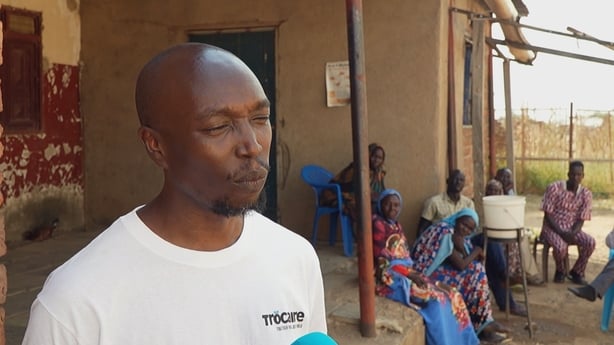
Many more displaced people are expected to arrive in the area now that the rainy season is over and it's easier to get around Sudan, and the remit of Trócaire's facility here has changed dramatically as a result.
"We have now created outreach sites at the IDP camp where medicines and medical personnel go to lessen the burden of the people. It's two miles away but most of them are malnourished and have already walked long distances to get here."
The Trócaire manager adds that "to reduce the pain we are able to go farther to them to give them nutrition supplies. We are also now doing health programmes there."
However, he warns that "because there are not enough supplies we are seeing more and more children falling out of the nutrition programme - and that is detrimental to the work that has already gone in."
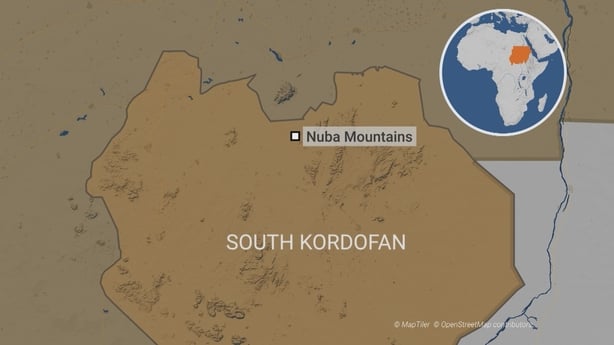
Sudan is 20 months into a devastating civil war, which has displaced more than 12 million people.
Many of them are on the move with nothing - no food, no water or possessions.
We hear many distressing stories in Tobo, including from one woman who fled her home in the capital, Khartoum, after it was caught up in a bombing.
Her daughter died in the strike, but had recently given birth - as had the woman herself. This meant when she undertook the 800-kilmometre journey to Tobo she carried her own child, as well as her recently orphaned grandchild.
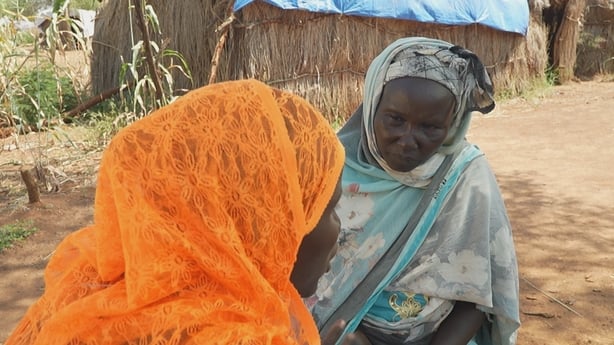
She is now breastfeeding both children.
South Kordofan is one of the more stable areas of Sudan, and has attracted around a million people feeling civil war.
They are living in 15 displacement camps dotted across the rural landscape.
As more people arrive, they bring with them horrific experiences of devastating war, extreme hunger, and sexual violence.
We need your consent to load this rte-player contentWe use rte-player to manage extra content that can set cookies on your device and collect data about your activity. Please review their details and accept them to load the content.Manage Preferences
Limited, but effective emotional support is offered at Tobo camp.
Najuwa Yassir has been living here for two years, and now she acts as a counsellor for the new arrivals - leading daily counselling sessions.
She says she tries to "encourage them to just be comfortable with the conditions until maybe help will come".
"I'm just using the skills I have ... I did not train."
She says up to 20 people take part in the daily sessions.
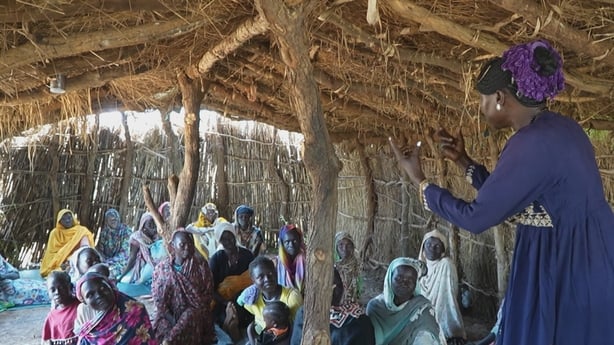
Tackling a crisis on the scale of Sudan with the current support levels amounts to a sticking plaster - that's the view of many humanitarian agencies working here.
And with the eyes of the world elsewhere, securing enough aid to make a lasting difference in Sudan is proving to be a monumental task.
The UN estimates €1.5 billion is needed to address Sudan's bulging crisis, with only a third of that figure secured from donors - leaving aid agencies struggling to keep up with demand.




